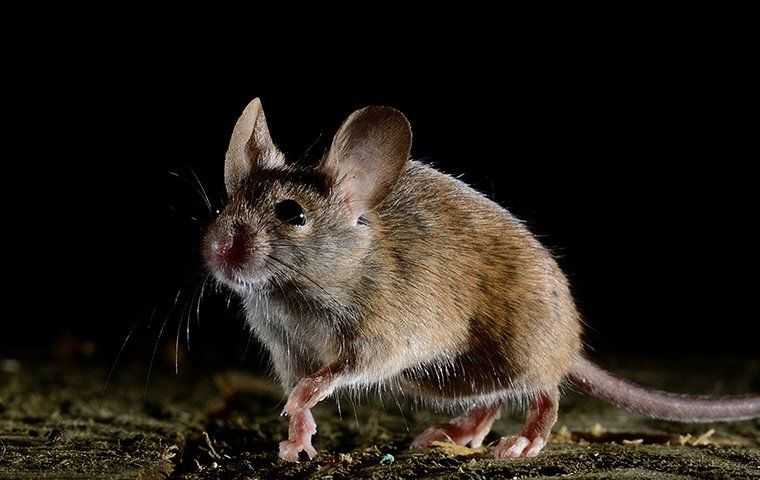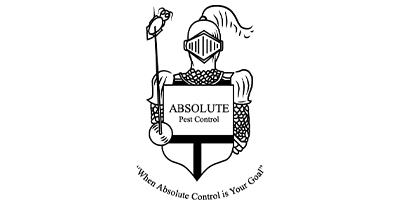We must do some things to survive and thrive. For example, while you can go several days without food, at some point, you must eat. To have a place to live, you must work to keep that home or apartment by paying the bills. While you can get groceries and things delivered to your home, transportation is necessary for emergencies or to visit loved ones.
Some things are essential to enjoy life; for Denver residents, one necessity is rodent control. Denver is home to many rodents, which can be the bane of our existence. If you have rodents in your house or destroying your lawn, you need rodent control in Denver from Absolute Pest Control.
We are a locally owned and operated company serving Denver since 1986. Our founders started the company because they believed national pest control chains were not conscious of the unique pest control issues in Denver. Also, we noticed that national pest control chains were locking people into general contracts, which did not consider the size of infestations, the Denver climate, and pest habitats. We won't stick our customers with hidden fees or require additional money should they need to end their service agreement.
You probably found this article because you live in Denver, have rodent problems, and need answers. Please keep reading so you can identify if rodents are the culprit and how you can stop rodents from placing your family at risk and harming your property.
Signs Of Rodents: How To Recognize The Signs And Act Promptly

Rodents are furry, warm-blooded mammals with an upper and lower pair of continually growing incisor teeth. From a pest control perspective, rodents that are comfortable living alongside humans are the ones that cause most Denver homeowners problems. These are the types of rodents that affect homes in our area:
Mice
Rats
Pocket gophers
Voles
The first two species, rats and mice, are problematic and invade many Denver homes, while pocket gophers and voles are a nuisance outside the house.
An obvious sign of rats or mice is their physical presence. House mice are the species most likely to invade a Denver home. House mice have a dusty grey 2 1/2 to 3 3/3-inch round body (not including the additional 2 1/2 to 3 3/4-inch tail) with a cream-colored belly.
Norway and roof rats are the two problematic rat species in the Denver area. Norway rats have a 7 to 9 1/2-inch brown body interspersed with black hairs. They have a grey or white underside, bunt nuzzle, and an additional 6 to 8-inch tail. Norway rats live on the lower floors of homes, while roof rats live in the attic and upper levels. Roof rats have the same body colors as Norway rats, plus the additional possibility of a black belly. They are slightly smaller and slender 6 to 8-inch bodies (not including the scaly tail) than Norway rats.
Rats and mice create trails from their nests to water or food sources in a house and litter these pathways with droppings, urine stains, grease marks, discarded food, and tracks. Rats produce olive-pit-sized feces, while mice create 1/8 to 1/4-inch fecal matter. If you think you have a rodent trail in your house, shine a black light in the area to reveal urine stains. They release urine out of necessity and spread pheromones that guide other rodents along the path. Another trick for discovering a rodent runway is to sprinkle talcum powder and wait a couple of days to reveal their four and five-toed footprints.
Rats and mice have oily fur that attracts dirt, grime, and disease-causing pathogens in the areas where they forage. Due to their poor eyesight and night activities, they bump into objects along their pathways and leave stains. In addition to discarded food along the trails, you may notice an odor in areas with a large rodent infestation.
Pocket gophers and voles infest areas outside Denver homes. Depending on the species, pocket gophers have a 5 to 14-inch brown body, a short tail, small eyes, and ears. Voles have 5 to 7-inch stocky, chestnut brown bodies, a dark grey underside, short legs and tails. Pocket gophers create tunnels under the surface and several half-circle mounds of loose dirt; a plugged side hole distinguishes gopher mounds from mole mounds. In addition to tunnels, voles construct runways on the ground surface and 6 to 8-inch nests of dry grass on the surface or underneath debris.
When you see these signs of a rodent infestation on your Denver property, you need Absolute Pest Control. We will dispatch a sales service technician who knows all the indicators to inspect your property.
The Rodent Menace: Understanding The Threat Of Uninvited Guests
Different rodents cause various issues for Denver homeowners. Pocket gophers and voles eat through plant roots as they burrow through the dirt. Furthermore, they eat garden crops, shrubs, tree bark, and vines. Not only do they harm vegetation, but they can destroy irrigation and flexible plastic water lines buried in the yard. These yard rodents can cause soil erosion, ruin lawn aesthetics, create tripping hazards, and be problematic for lawn equipment.
While rodents outside homes harm property and create fall risks, rats and mice inside can be significantly more devastating for homeowners. Rats and mice forage in sewers, drains, trash, and compost piles and on animal feces; warmth and high humidity in these areas promote bacterial, viruses, and parasitic worm growth. When rats and mice move through these areas, disease-causing organisms stick to their oily fur, and ectoparasitic insects and arachnids (e.g., fleas and ticks) jump or climb onto them. Furthermore, the rodents ingest pathogens as they consume rotting animal and plant matter in these locations.
When rats and mice enter a home, pathogens stuck on their fur transfer when they bump into objects as they move through the house. They deposit disease-infested feces and urine on cooking and eating surfaces, inside kitchen and bathroom cabinets, and throughout the home. Rodents must constantly gnaw to trim and sharpen their ever-growing incisor teeth, thus spreading infected saliva on objects.
In addition to diseases specific to their species, rats and mice spread leptospirosis, tularemia, and salmonellosis to humans. For example, house mice also transmit lymphocytic choriomeningitis (LCM); deer mice can trigger hantavirus pulmonary syndrome, a viral infection that spreads through dust particles contaminated by their urine, feces, or saliva. Additional bacterial and viral illnesses spread by rats include rat-bite fever, jaundice, cowpox virus, and trichinosis. Fleas and tick hitchhikers can spread other diseases and parasitic worms to humans and pets inside infested homes.
Rats and mice may also cause home occupants to experience allergic reactions and asthma attacks. After their feces dry, particles can become airborne and circulate through the house. The elderly, small children, and those with allergy sensitivities can experience shortness of breath, sneezing, coughing, chest tightness, and other symptoms upon inhaling the floating fecal matter.
Rodent control from Absolute Pest Control protects against the different types of rodents that invade Denver homes.
Outdoor Defense: Landscaping Strategies To Deter Rodents
Pocket gophers and voles harm plants by chewing through the roots or pulling them into their tunnels. To protect your plants against pocket gophers, bury hardware cloth or 1/2 to 3/4-inch wire mesh two feet deep below the soil and leave six inches bent at a 90-degree angle away from the plants above the surface. Another idea is to place wire mesh in the base of flower beds before adding topsoil. If voles are the problem, you don't have to extend the wire mesh as deep into the soil (about six inches), but you must go 18 to 24 inches above ground to prevent them from stripping tree bark. Also, replacing mulch with stones around trees will discourage voles.
Rodents enter a property for food, water, and shelter. Limit nesting possibilities for rats, mice, and voles by removing logs, stones, ground cover, and other debris. Keeping the grass mowed short will deter voles from staying in the yard.
When an Absolute Pest Control sales service technician inspects your property, we can provide additional tips to deter lawn rodents on your Denver property.
Rodent-Proof Your Property: Key Steps To Keep Unwanted Guests Away
We recommend these rodent prevention tips:
Remove junk and debris from the property.
Keep outdoor garbage and compost containers closed.
Provide proper drainage to the property.
Pick up rotting fruit and animal feces in the yard.
Move woodpiles 20 feet from the house and elevate.
Seal foundation and roofline cracks.
Place wire mesh screens over the attic and crawlspace vent opening.
These tips are most beneficial after securing Denver rodent control services from Absolute Pest Control.
We will inspect your property to determine the type of rodents, entry points, attractants, and hot spots. We place treatments into the trails of pocket gophers; for voles, we insert products into their mounds. We use a combination of strategically placed baits and traps to capture interior rodents. Contact us today to learn more about our home pest control services and to get a free estimate.
Awesome service and results. I live in rural parker. If you want to get rid of bugs and mice they know how to do it. The owner came out personally to give a quote. He knew exactly what to do. I highly recommend this company.


